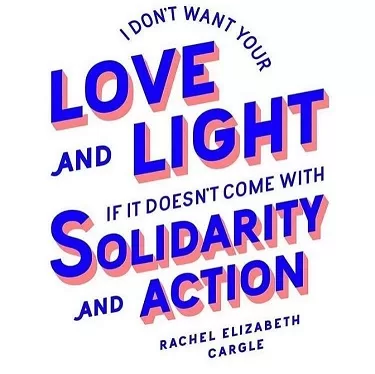Spiritual bypassing, toxic positivity, and gaslighting in Yoga.
Three terms that are currently being used in many articles and testimonials in the debate about the lack of inclusivity in yoga and especially racism in yoga.
Neither of these terms has been coined recently, but are descriptions that are several decades old.
John Welwood, a Buddhist teacher and psychotherapist, coined the term spiritual bypassing in the mid 1980’s.
Spiritual bypassing is a term I coined to describe a process I saw happening in the Buddhist community I was in, and also in myself. Although most of us were sincerely trying to work on ourselves, I noticed a widespread tendency to use spiritual ideas and practices to sidestep or avoid facing unresolved emotional issues, psychological wounds, and unfinished developmental tasks. (John Welwood, On Spiritual Bypassing and Relationship)
Psychologists use the term gaslighting to describe a specific form of psychological violence against people who are deliberately disoriented, manipulated and deeply unsettled.
Even in English, this technical term is not explained in a purely literal sense. It refers to the 1938 play Gas Light, in which British playwright Patrick Hamilton explores this particular form of psychological violence.
Although these terms may not be yet so well known in the international yoga communities, they describe phenomena that many yoga practitioners and teachers are familiar with.
At the beginning of my professional involvement with yoga, I also fell into the trap of spiritual bypassing.
HOW I CHEATED MYSELF WITH SPIRITUAL BYPASSING
Five years ago, after a decade of activist and academic work on racism against Sinti and Roma, I took a ‘sabbatical’ in India. A trip I intended to use to deepen my spiritual practice.
Away from the serious issues that had been occupying me recently, I wanted to learn more about yoga, close to its origins. And I did.
And I also learned that I cannot escape my personality with all its facets – even and especially the challenging ones, because they have not yet been worked on – by (suddenly) getting up early, meditating for hours and doing fire ceremonies.
Thus, in various places in India, I found myself repeatedly in the midst of open-minded, young, privileged people from all over the world, juggling, bartering, praying and massaging, and unquestioningly calling themselves ‘gypsies’.
They were using a racist term, distorted beyond recognition, which hurt me personally and repeatedly jolted me out of my short-lived bliss during this and other experiences.
My unconscious attempt to use this journey to rid myself of the sometimes uncomfortable features of my identity as quickly and permanently as possible went awry.
And so over time a spiritual path opened up for me that is now less tied to redemptive expectations.
SPIRITUAL BYPASSING AND ACTIVISM
As we move towards co-creating inclusive and anti-racist yoga communities, it seems necessary to pay special attention to spiritual bypassing and the related strategies of toxic positivity and gaslighting.
These are clear techniques for unconsciously or consciously hurting people and excluding them from our offerings and healing practices.
We use spiritual bypassing not only against ourselves, but also against others.
For example, when we ignore and dismiss individual experiences or testimonies with references such as ‘focus on something higher’ or ‘stay in your balance’.
These avoidance strategies under the guise of spirituality are also directed at whole movements. Such as Black Lives Matter (BLM), when some promote “All Lives Matter” in conjunction with Light & Love.
In this case, the alternative slogan also contains a statement about the principle of equality. A principle, which is of course shared by BLM supporters and is ethically correct, but it is instrumentalized in a specific temporal, content-related and situational context as a counter-slogan to BLM.
This approach ignores the lived experiences of many who are working to protect the lives and safety of black citizens in particular, and weakens the general struggle against racism.

In the US, scholar and activist Rachel Elizabeth Cargle, among others, has spoken out about this spiritual ignorance of problems and grievances outside our mats and yoga shalas.
She reports that she has often been advised, even in spiritual circles, to choose love, light and peace over her anger and resentment at racism in the US.
The researcher sees this kind of advice as an attempt by some white people to use spiritual bypassing and gaslighting to erase the lived experiences of an oppressed and marginalized group in the name of love, light and peace.
This attempt is primarily an expression of a supposedly higher morality that is part of white privilege.
She concludes that it is precisely this privilege that allows the white authors of this advice to avoid acknowledging and participating in a reality that does not directly affect them.
Spiritual bypassing thus contradicts the yogic values Patanjali has given us in the yamas and niyamas. With it, we misuse spiritual practice as an excuse not to deal with one’s own part in injustices such as racism.
This attitude of refusing to deal with injustices and urgent problems in the here and now, both internally and externally, can also be observed in yoga communities outside the US.
HOW DO WE AVOID SPIRITUAL BYPASSING, TOXIC POSITIVITY AND GASLIGHTING?
If we focus our awareness and efforts on these three interrelated pitfalls, we can gradually identify and dissolve more and more of them in ourselves and those around us.
We are all moving at our own pace.
What we can influence in the short term, however, is our use of language in our inner dialogue and with others.
For all three phenomena manifest themselves in the way we talk about spirituality and react to problems and injustices.
https://www.instagram.com/p/BtWE80-HOjx/
If, on reading the linked overview, we realize that we have used some or more of the phrases classified as toxic in the past in conversations with others or ourselves, we can first acknowledge this with an attitude of observation and non-judgment.
This initial acknowledgement is the starting point for reflecting on the context and timing of the statements made. As well as for our own intentions in relation to them.
As the process unfolds, we will recognize that we may have done more harm than good to our counterpart with our statements. Regardless of the supposedly well-meaning intentions behind them.
This reflection will lead us to act and think in a more sensitive and informed way about the pitfalls of spiritual bypassing, toxic positivity and gaslighting.
